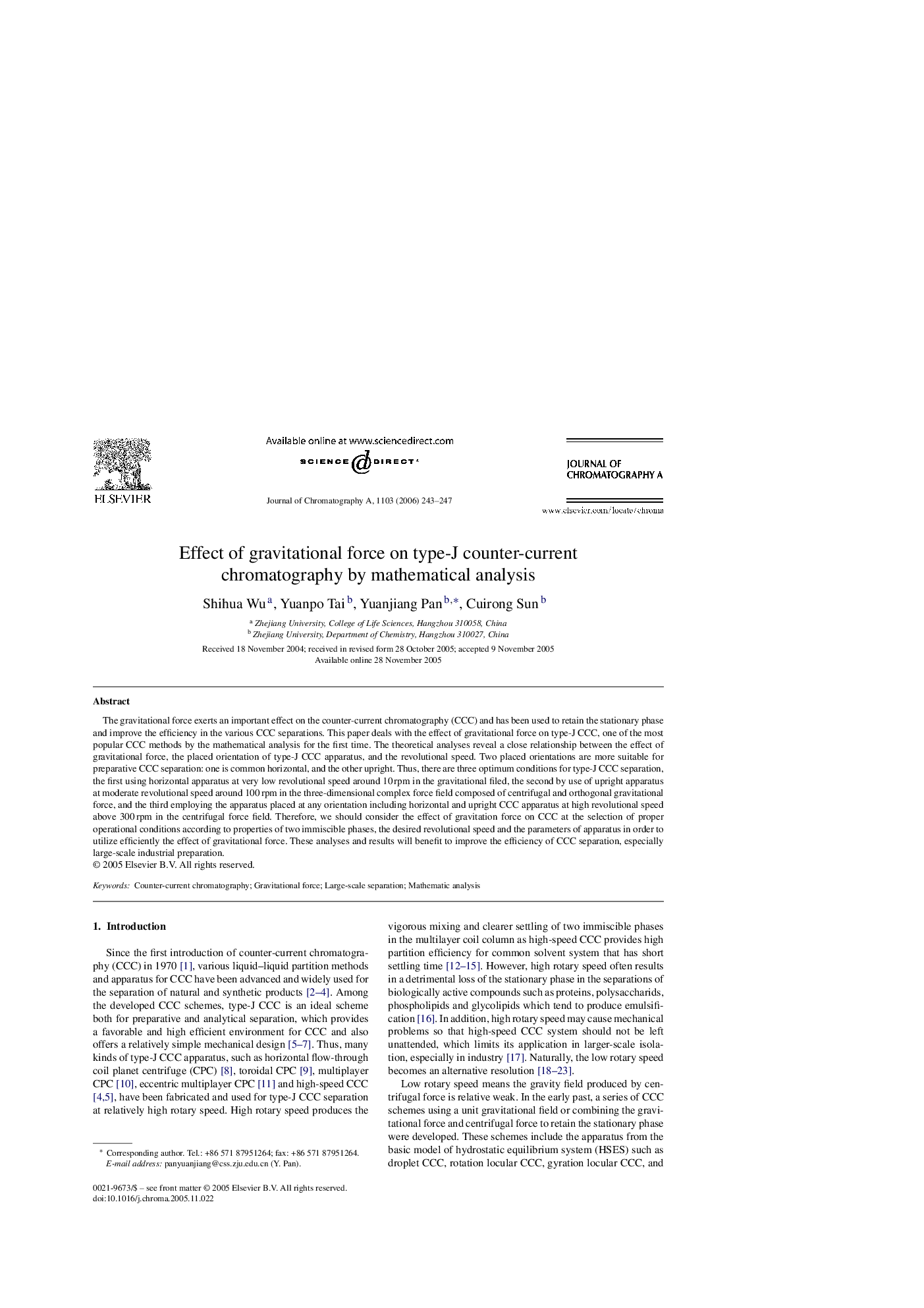| Article ID | Journal | Published Year | Pages | File Type |
|---|---|---|---|---|
| 1210276 | Journal of Chromatography A | 2006 | 5 Pages |
The gravitational force exerts an important effect on the counter-current chromatography (CCC) and has been used to retain the stationary phase and improve the efficiency in the various CCC separations. This paper deals with the effect of gravitational force on type-J CCC, one of the most popular CCC methods by the mathematical analysis for the first time. The theoretical analyses reveal a close relationship between the effect of gravitational force, the placed orientation of type-J CCC apparatus, and the revolutional speed. Two placed orientations are more suitable for preparative CCC separation: one is common horizontal, and the other upright. Thus, there are three optimum conditions for type-J CCC separation, the first using horizontal apparatus at very low revolutional speed around 10 rpm in the gravitational filed, the second by use of upright apparatus at moderate revolutional speed around 100 rpm in the three-dimensional complex force field composed of centrifugal and orthogonal gravitational force, and the third employing the apparatus placed at any orientation including horizontal and upright CCC apparatus at high revolutional speed above 300 rpm in the centrifugal force field. Therefore, we should consider the effect of gravitation force on CCC at the selection of proper operational conditions according to properties of two immiscible phases, the desired revolutional speed and the parameters of apparatus in order to utilize efficiently the effect of gravitational force. These analyses and results will benefit to improve the efficiency of CCC separation, especially large-scale industrial preparation.
